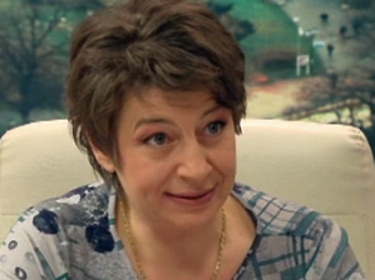178 years ago on July 18, the first cry of yet another child was heard in the family of Ivan and Gina Kunchev –Vasil. In the Bulgarian lands still under Ottoman rule at the time, the future Apostle of Freedom was born.
In 1858, he became a monk and took the name Ignatius, but in 1864, on the eve of Easter, he threw away his cassock. But not in order to abandon God but rather to devote himself to the struggle for the liberation of his people from five centuries of oppression. He believed that without the awakening of the people the much-desired freedom could hardly be achieved. He travelled across Bulgarian lands and under the gaze of the Turkish rulers created a network of revolutionary committees.
"Via a total revolution to make radical transformation of the current despotic and tyrannical state system and replace it with a democratic republic. In the same place which is now the domain of power, we must erect a temple of truth and human freedom", this was how the Apostle saw the foundations of the future state. In 1873, after betrayal, Levski found his death, but his work continued with the April Uprising of 1876, whose organization was based on a revolutionary network he created. The rebellion was steeped in blood, but it drew world attention to the Bulgarian lands, leading to the Russo-Turkish War of 1877-78 and the Liberation of Bulgaria.
Today Levski is an icon for every Bulgarian. Our desire to get as close as possible at least partly to Vasil Kunchev, the man of flesh and blood behind the icon Levski, took us to Hristina Bogdanova –great-great-granddaughter of his sister Yana. Can we say today that we have implemented democratic ideas in our life in the name of which Levski and so many known and unknown Bulgarians shed their blood?
 "Unfortunately, in the time we live in, I do not see all those things in which he believed, for which he fought. What I appreciate most in him is his freedom because it is a state of mind. It is not something that somebody can give you. Levski acted extremely responsibly, thinking about how his actions and ideas would affect the rest of his countrymen. He divided people into honest and decent, and into people who did not possess these qualities. He was an extremely tolerant and broad-minded man," Hristina Bogdanova says.
"Unfortunately, in the time we live in, I do not see all those things in which he believed, for which he fought. What I appreciate most in him is his freedom because it is a state of mind. It is not something that somebody can give you. Levski acted extremely responsibly, thinking about how his actions and ideas would affect the rest of his countrymen. He divided people into honest and decent, and into people who did not possess these qualities. He was an extremely tolerant and broad-minded man," Hristina Bogdanova says.
"Our precious Homeland needs decent people to take it onto the path of prosperity, so that we could be equal to other European nations," proclaimed the Apostle. He was also preaching tolerance. "For him the criterion was to respect the principles of the ideal state. And whether one was a Turk, Bulgarian, Gypsy or belonging to another ethnic group, it would not matter if one lived worthily and honestly," Ms. Bogdanova adds. She recalls some of Levski’s words which are particularly valuable in her opinion:
"The road that you must travel does not end with my death”, Levski said. This phrase seemed to contain his entire message to future generations. Freedom is not only to be won, but it is to be defended – every single day as long as Bulgaria and Bulgarians exist. I believe that everyone in their own way can be a worthy successor of those ideas. It is enough to be good to each other, smiling, tolerant, open. This will certainly make our world a better place. And when we ourselves begin to act in this way, to care for our children in a worthy manner we will surely create a prerequisite for changing our current so-called “elite”. Just the road starts within us, from us."
There are many words of wisdom that we draw from the legacy of the Apostle. Yet which of them are especially relevant today?
"I would put it this way. Life is sacred and integral”, Hristina Bogdanova says. “Most important is what choices we make. Because we can always choose and this choice is what makes us human. Our freedom – personal or national, is determined by our ability to make choices and to defend them, regardless of their price. Becauseas Levski deeply believed, it is better to die standing than live on your knees in fear and frustration. Perhaps this is what for me is the most valuable. "
English version: Rossitsa PetcovaPriest Lyubomir Bratoev is a direct participant in the events of t he founding of the Bulgarian Orthodox Church community in Berlin . He came to the capital of East Germany in the late 1980s as a doctoral student. And, like a typical Orthodox Christian..
After nearly 35 years, the Bulgarian Orthodox Church Community in London has its own church in the central part of the British capital, in close proximity to the Bulgarian Embassy. There, in the prestigious Kensington district, next to Hyde Park and..
Meatfare Sunday in 2025 will be remembered as a major celebration for the Bulgarian Orthodox Church and the entire Bulgarian community in the United Kingdom. The "St. John of Rila" Orthodox Church, built with funds from the Bulgarian state and with..

+359 2 9336 661
